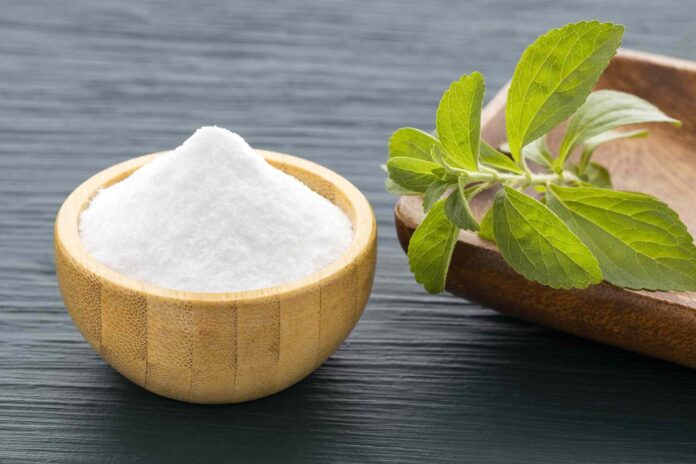Stevia, a natural sweetener derived from the leaves of the Stevia rebaudiana plant, has gained popularity as a sugar alternative. It’s lauded for its zero-calorie content and ability to satisfy sweet cravings without spiking blood sugar levels. But is stevia truly a healthy swap for sugar, and are there any potential downsides?
The Sweet Truth About Stevia:
Stevia boasts roughly 300 times the sweetness of table sugar. High-purity stevia (containing at least 95% steviol glycosides) is generally recognized as safe by the U.S. Food and Drug Administration (FDA) for use in food products. However, not all stevia products are created equal.
Potential Concerns:
-
Purity Matters: While highly pure stevia extracts are considered safe, some stevia products contain additional plant matter or other ingredients like artificial sweeteners. The FDA only approves the higher-purity types for direct food use, but these lower-purity versions can be sold as dietary supplements.
-
Stomach Upset: Some people experience digestive discomfort when consuming stevia, including stomach pain, bloating, gas, nausea, or vomiting.
-
Gut Microbiome Impact: Research on the effects of stevia on gut bacteria is still emerging. While some studies suggest it may support gut health, others indicate potential disruptions to the balance of beneficial and harmful bacteria in the gut. More research is needed to understand its long-term impact.
- Additives on Board: Even in pure stevia products, manufacturers often add other ingredients to enhance taste, texture, or stability. These additives might include fillers, flavorings, or additional sweeteners.
Potential Benefits:
The allure of stevia lies largely in these potential advantages:
-
Zero Calories: For those watching their calorie intake, individuals on a ketogenic diet, or those managing diabetes, stevia provides sweetness without the caloric burden of sugar.
-
Stable Blood Sugar: Unlike sugar, stevia doesn’t raise blood glucose levels, making it a potentially beneficial choice for people with type 2 diabetes or prediabetes. Some studies even suggest that replacing sugar with stevia may modestly lower overall blood sugar levels.
-
Blood Pressure Support: There’s limited but intriguing evidence that stevia might contribute to lowering blood pressure, though further research is necessary.
- Weight Management Aid: While not a magic bullet, the calorie-free nature of stevia and its ability to reduce sugar intake could potentially play a role in weight management efforts.
Stevia vs. Artificial Sweeteners: While both offer sweetness without calories, key differences exist:
-
Natural Origin: Stevia is plant-based, whereas artificial sweeteners are synthetically produced.
-
Sweetness Intensity: Most artificial sweeteners are much sweeter than stevia.
-
Health Concerns: Some studies associate long-term consumption of certain artificial sweeteners with an increased risk of diabetes and heart disease, although more research is needed to establish definitive links. Stevia’s effects in this regard remain less clear.
The Bottom Line:
High-purity stevia can be a viable sugar alternative for many people. It offers the potential benefits of sweetness without added calories or blood sugar spikes. However, it’s essential to choose reputable brands and be aware of potential side effects, especially digestive issues. As with any dietary change, moderation is key, and consulting with your doctor or a registered dietitian is always advisable before making significant shifts in your diet.
